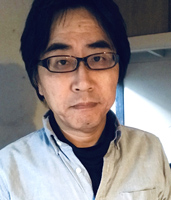Library and Youtube Akio Nakamata(Writer/Editor)

Haruki Murakami’s new novel “The City and Its Uncertain Walls” has become a hot topic.
This is a feature length rewrite of the short story “The City and its Uncertain Walls” (with punctuation here), which was sealed as a failed work in the early days. Murakami stated that the work was started in 2020, “at the beginning of March, when the coronavirus began to rage in earnest in Japan,” and that it took three years to write. That situation might mean something, it might mean nothing, but it probably means something, and I know that firsthand.”
This novel is set in both a fantasy place called “town” surrounded by “walls” and the real world. The narrator “I” is called “Dream Reader” in “Town” and is engaged in the task of reading “Old Dreams” in the library. On the other hand, “I” in the real world is a middle-aged office worker who works for a book agency, but quits at the age of 45 and finds a job at a small library in Fukushima Prefecture. Even in the real world, reading books in a kind of isolated and safe place called a library is superimposed with reading <old dreams> in a “town” surrounded by “walls”.
By the way, “wall” is one of Haruki Murakami’s keywords. His famous 2009 Jerusalem Prize acceptance speech was entitled “Eggs and Walls.” Murakami said that against the strong and cold “wall” of the “system”, we were “eggs” with a weak but warm soul. The novella “The City and its Uncertain Walls” was first rewritten in 1985 for Murakami’s masterpiece “The End of the World and Hard-Boiled Wonderland”. In this work, we can already see that “The End of the World” symbolizes the “soul = egg” side, and “Hard-boiled Wonderland” symbolizes the “system” side.
In this feature-length film, The City and Its Uncertain Walls, Murakami changes the ending of The End of the World and Hard-Boiled Wonderland (where the main character decides to stay in the city) and decides to leave the city. bottom. Considering that this modification was made during the long period of social isolation caused by the Covid-19 pandemic, the fact that this novel was written in the midst of a pandemic “probably means something.”
By the way, Ryu Murakami, who has been compared as “double Murakami” since his debut, also published a new collection of short stories “YouTuber” around the same time. The main character here is also a middle-aged man who retired early from a company where he was an executive and started his own business. In contrast to Haruki’s main character becoming a “librarian”, Ryu’s main character becomes a “YouTuber”. It’s interesting to compare these choices. “Paper books” vs. “Internet”, or “prints” vs. “videos”…even though there is such symmetry, both are based on media that transcends the “wall” of social isolation. I highly recommend reading the comparison between the two works.
